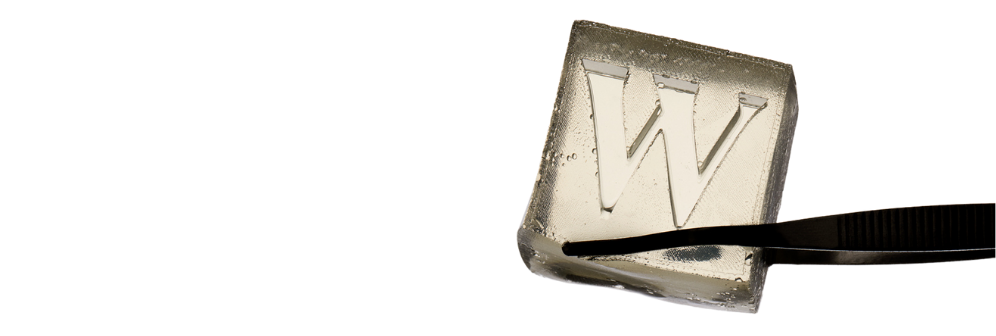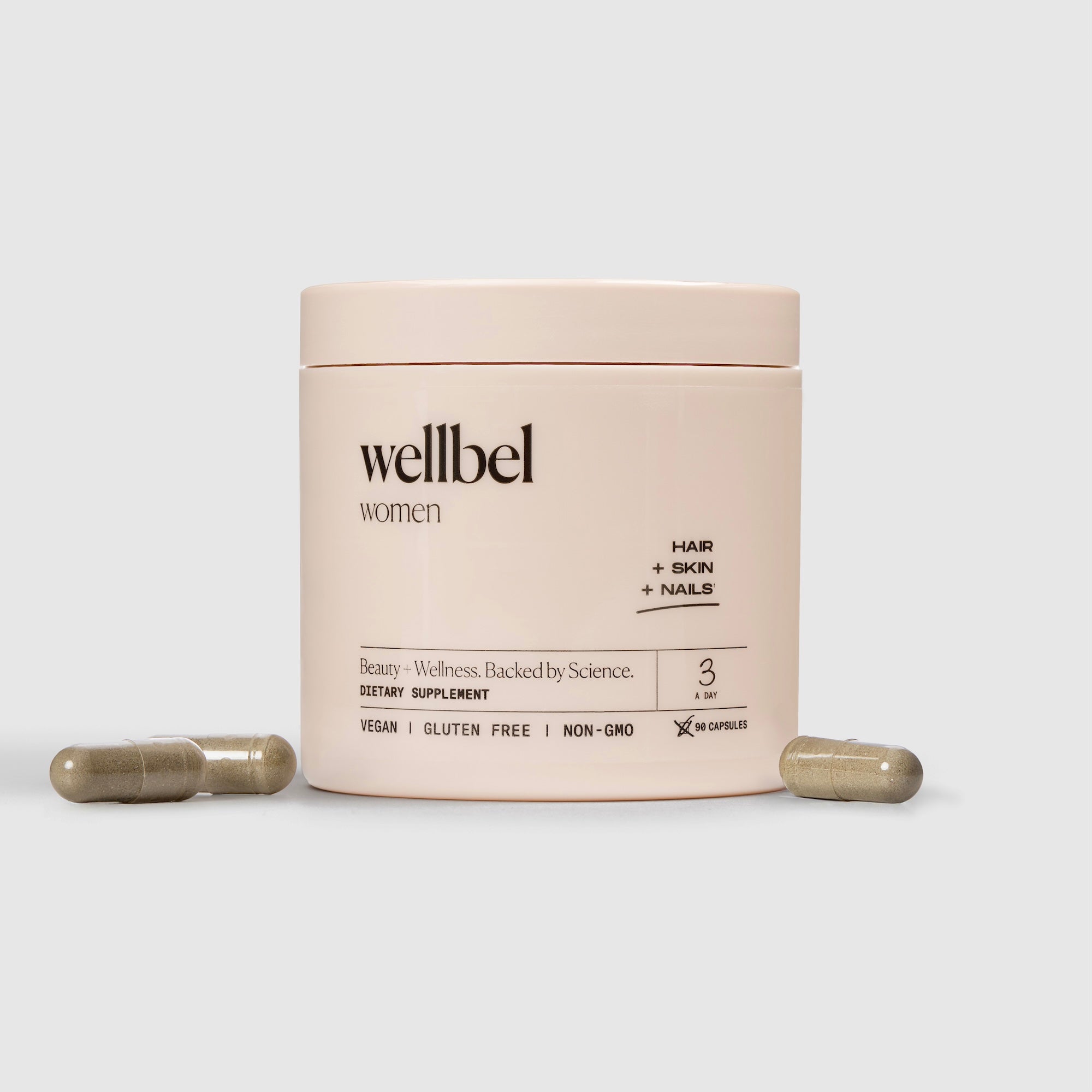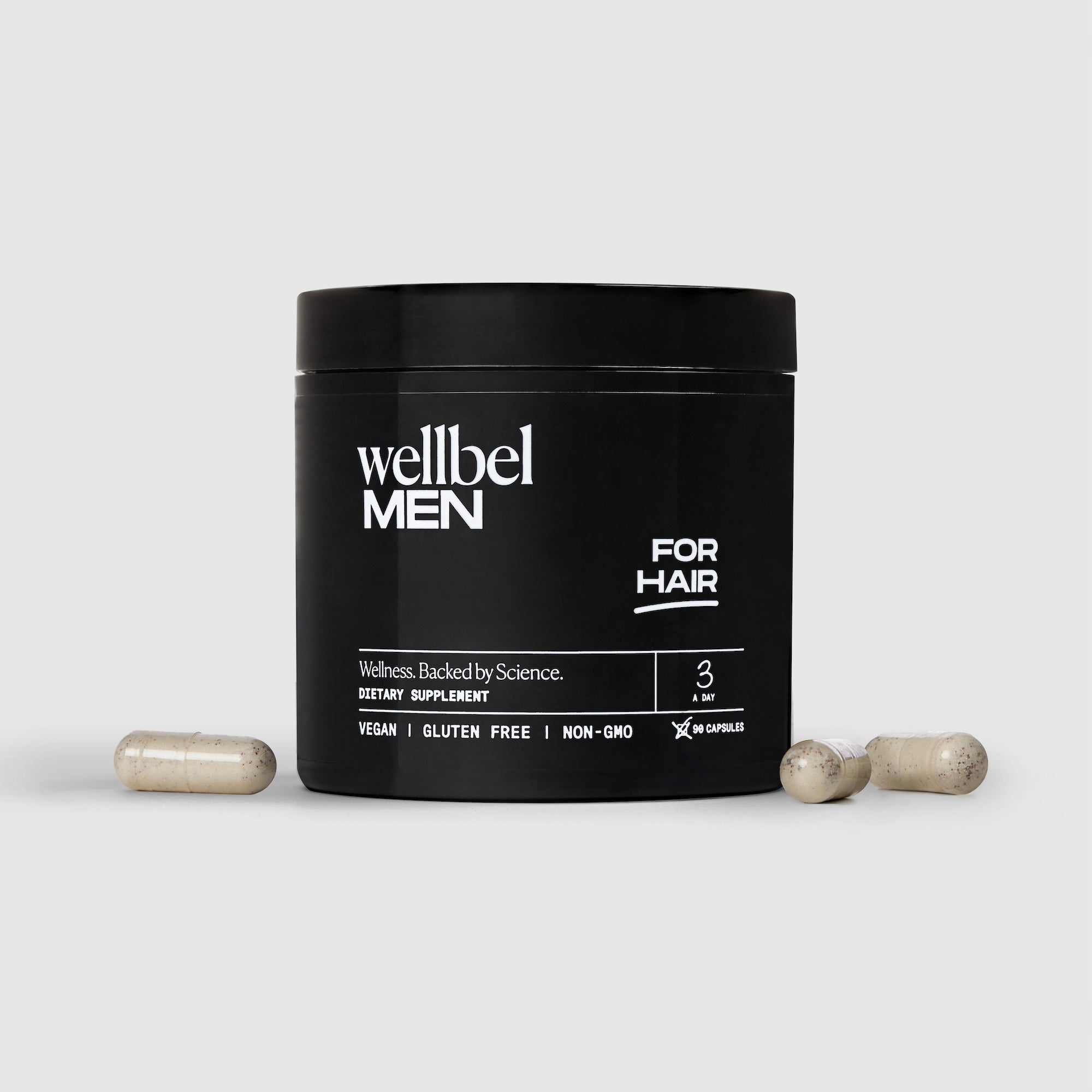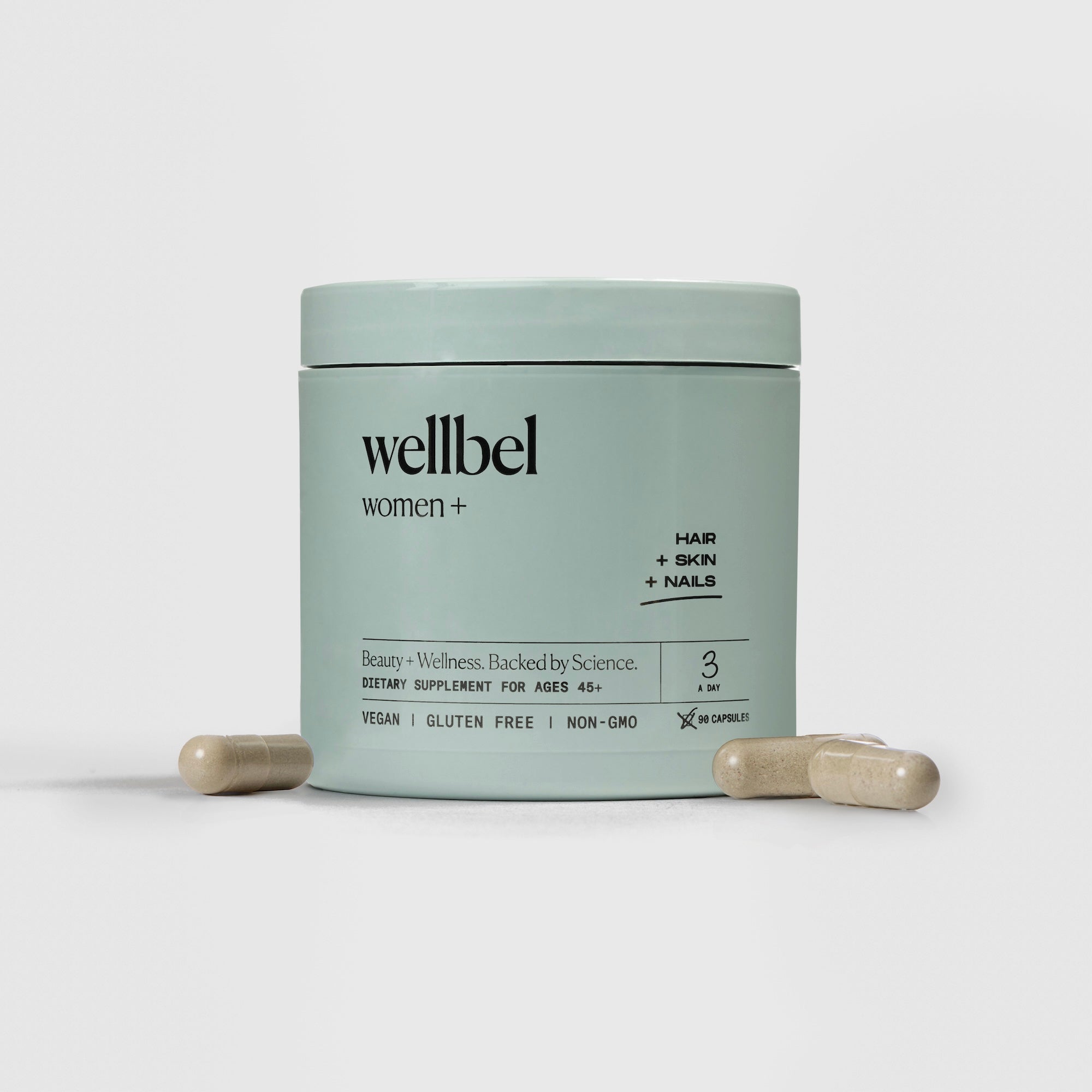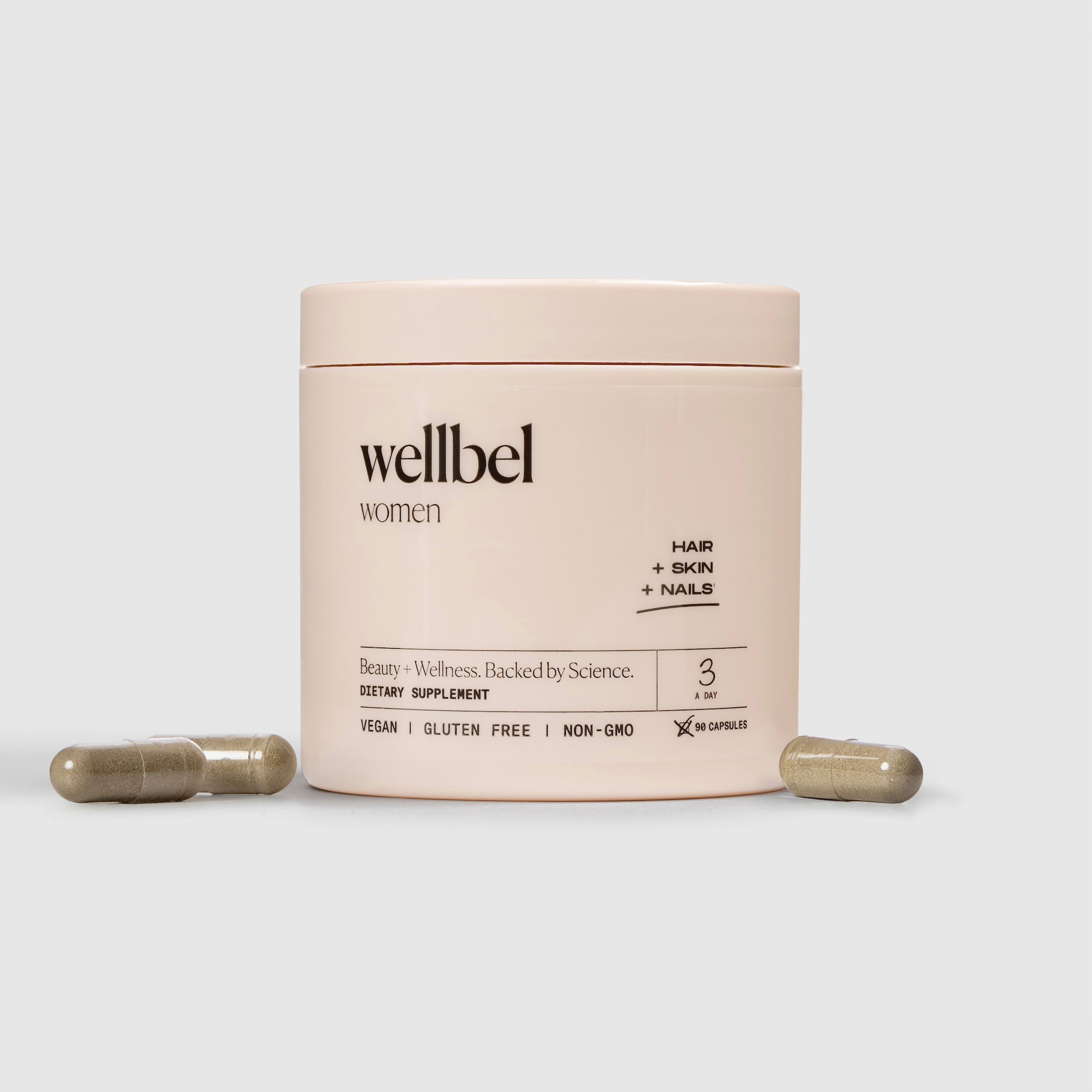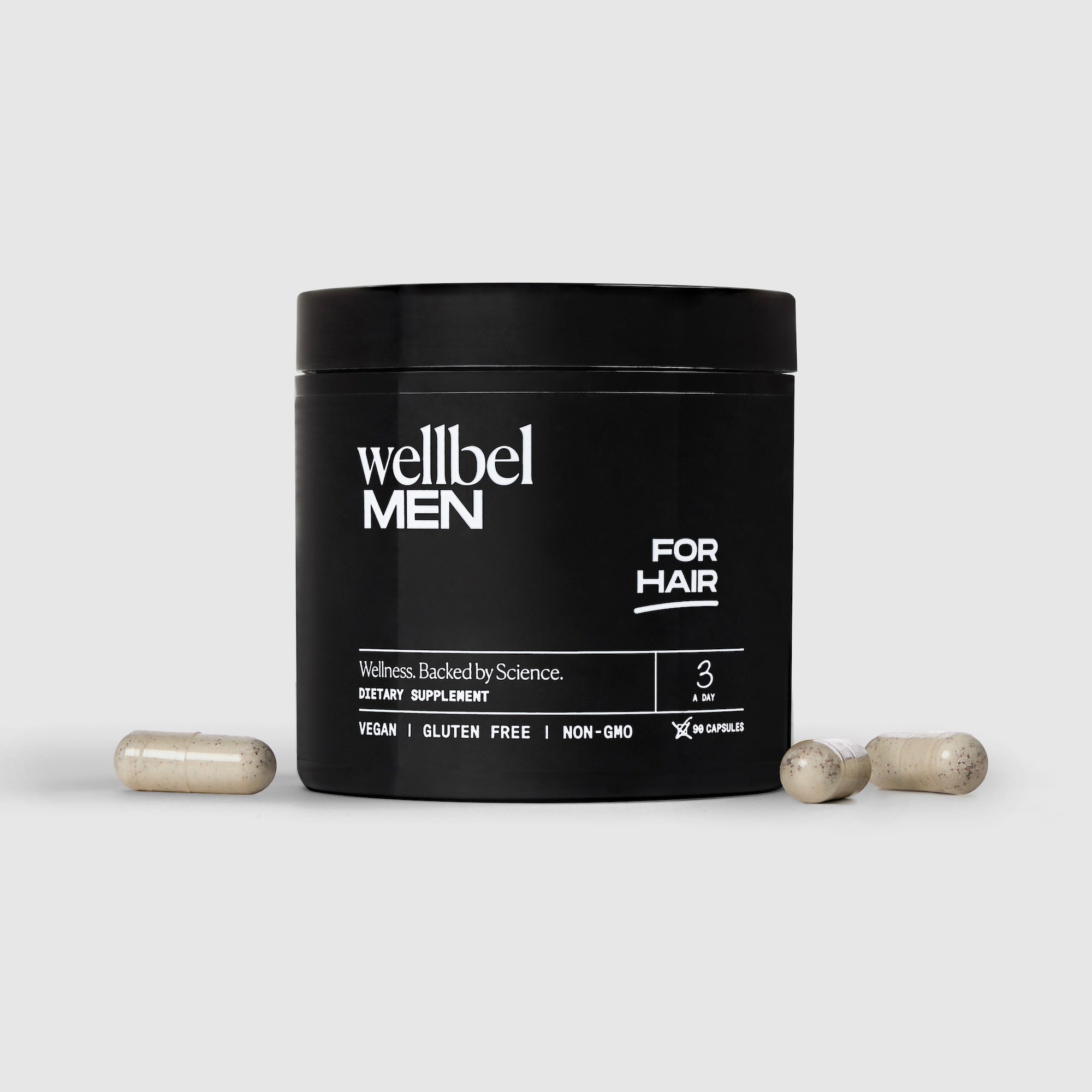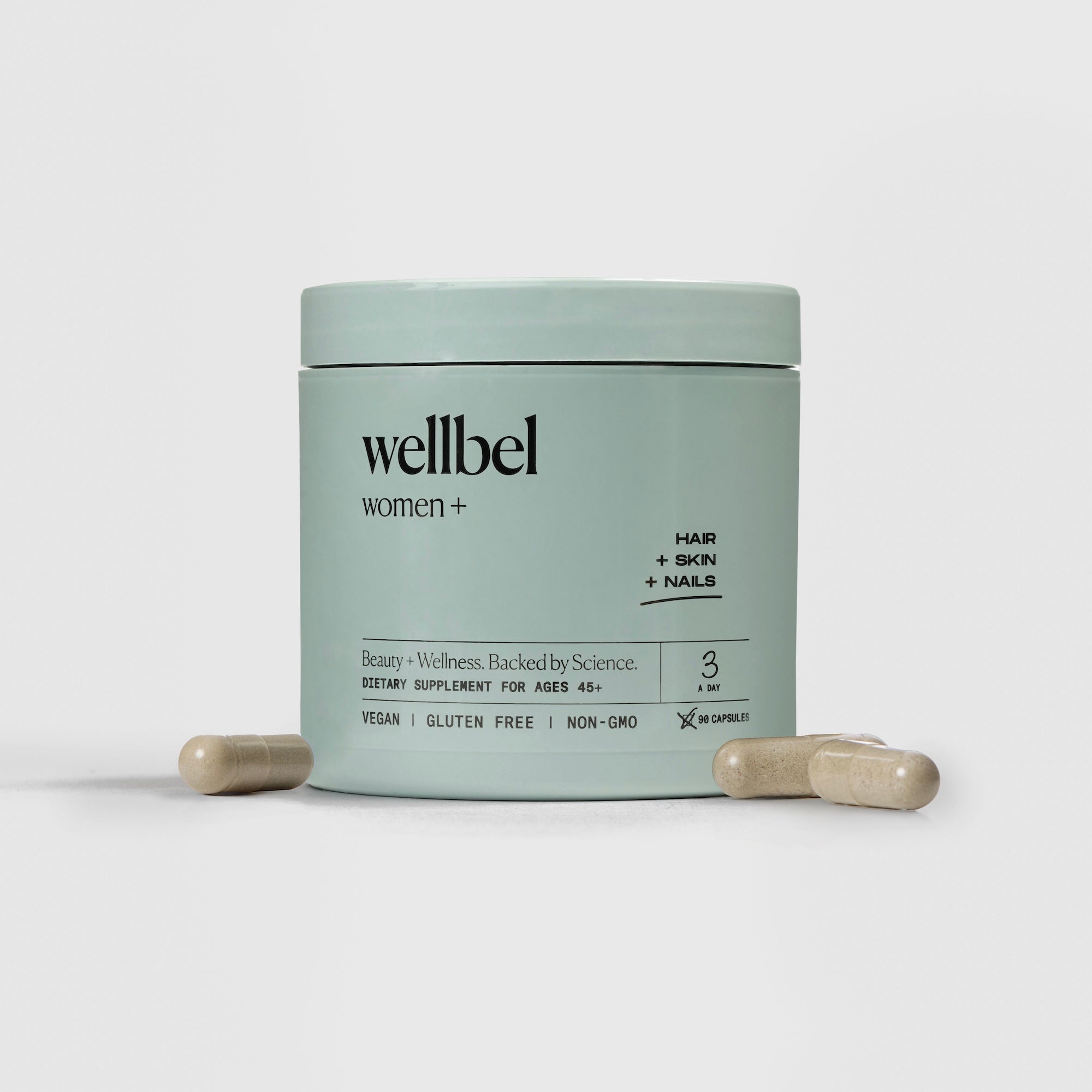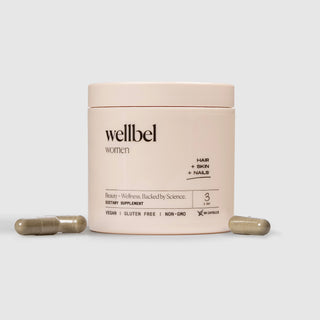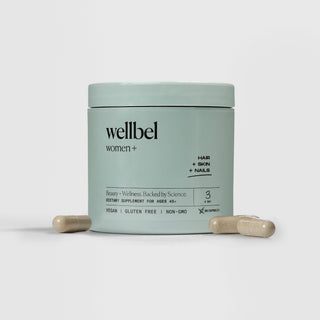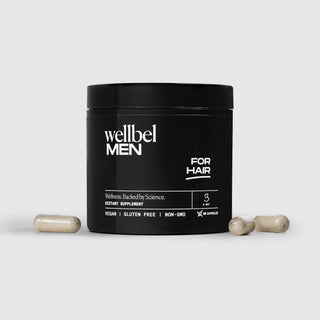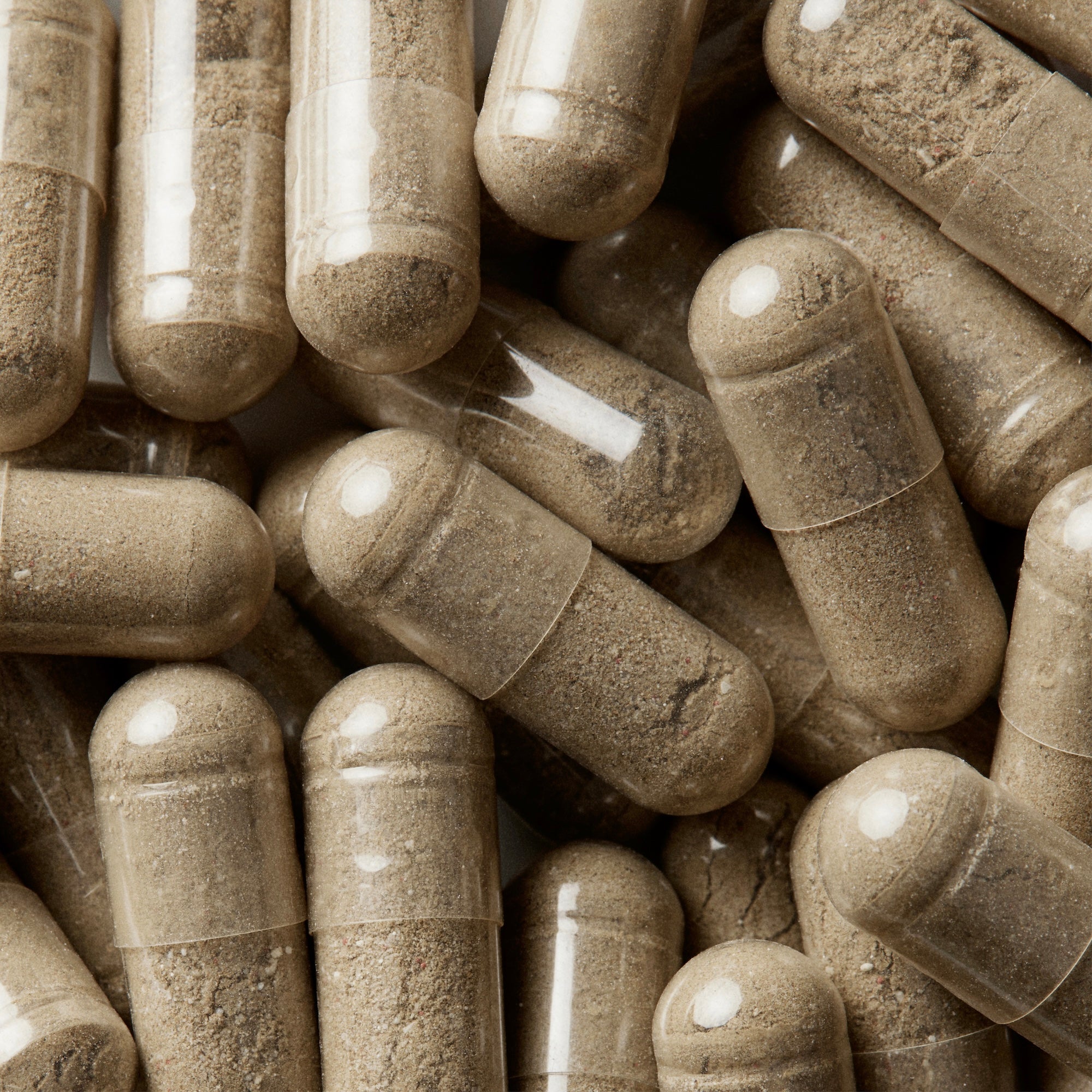Ever feel like you’re expected to be a scientist when it comes to hair and skin care? Keratin, collagen, amino acids — oh my! This stuff can be intimidating.
But understanding what these terms mean and how they contribute to your hair and skin growth is an essential step in building your own care routine. It can help you see where the deficits are and how you can bridge the gap.
Now, every hair care routine requires some guesswork, but if you ask us it’s a lot better to make an educated guess than a shot in the dark. So on that note, today we’re going to be breaking down the connection between collagen and hair health, from its benefits to its pitfalls, plus some tips on how you can encourage collagen production within your own body.
The Basics: What is Collagen?
Let’s start simple. Collagen is one of those words you hear all the time in skincare and hair care, particularly for women over forty, but what does it actually mean?
Understanding Collagen
Collagen is the most abundant protein within the human body. In fact, collagen makes up for thirty percent of the protein in your body. Mostly, you can find collagen in your skin, bones, muscles, and connective tissues like tendons and ligaments, helping to provide structure and strength to each.
Collagen, like all proteins, is made up of amino acids, which it creates from the vitamins and nutrients from your diet. In the case of collagen, vitamin C, zinc, magnesium, and copper join together to create the amino acids responsible for making up collagen. There are twenty eight identified forms of collagen in the body.
In other words, it’s a big deal.
Collagen and Hair and Skin Health
You might be familiar with the role collagen plays in skin health. Collagen-rich skin is more elastic and smooth, while collagen-deficient skin is more prone to wrinkling and rigidity. But how about hair?
There are a few key areas where collagen is linked to hair growth, when consumed via supplements or your diet:
- Production of Keratin: Hair is mostly made up of a protein called keratin, which like collagen, is made up of essential amino acids. One amino acid in particular is shared between collagen and keratin, and it’s called proline. Consuming proline rich collagen will help your body create more amino acids, which help encourage the production of healthy hair growth.
- Fighting Hair Thinning: We talk about skin elasticity a lot when it comes to appearance, but the real story is bigger than that. Collagen can be found in the dermal sheath of hair follicles and evidence shows that the age-related slowing production of collagen can lead to hair thinning. Collagen helps hair growth in so far as it provides a stronger structure within the hair follicle to produce thicker hair strands, defying age related hair loss.
All that said, more research is required to fully understand how collagen can help stimulate hair growth, but the evidence so far is encouraging.
Collagen and Aging
We mentioned earlier that aging is tied to slower production of collagen. Let’s dive into that a little deeper. While collagen is found abundantly throughout connective tissue and ligaments, the fact is that the body produces less and less of it over time.
The body’s ability to produce collagen begins depleting around the age of thirty for most people. Physically, that may mean that you start to feel more aches and joint pain. Superficially, your skin may start to sag and become more prone to wrinkles. Now there’s nothing wrong with aging. Wrinkles are signs that we’ve lived, laughed, and made memories, but if you’re feeling self-conscious of your lines, you can prioritize a diet that includes the vitamins and minerals that help make up collagen’s amino acids like vitamin C, zinc, and magnesium.
Bonus? These vitamins and minerals also support hair follicle regeneration and improve skin hydration.
How You Can Support Your Collagen Production
While some people may choose to take collagen peptides via powder or capsules, there’s another way to increase your body’s collagen production, naturally.
Help Your Body Produce More Collagen
The first is helping to supplement your body’s production of collagen naturally. Making sure you’re getting enough vitamin C, zinc, magnesium, and copper in your diet can help encourage the production of amino acids which constitute collagen.
A balanced diet containing these vitamins and nutrients is a great way to feed your body what it needs to increase collagen levels, but if you’re having trouble reaching your daily intake, a supplement can help. Our formula helps increase the natural production of collagen, elastin, and keratin, supporting smoother skin and strong hair.
Last Thoughts on Collagen and Hair Growth
Whether you’re taking collagen for hair growth or improving your body’s natural production of collagen, increased collagen levels can have positive effects on your skin and nails as well as your hair regrowth.
If you’re dealing with thinning hair, hair follicle damage, or simply want stronger, thicker hair, focusing on your collagen production is a great way to promote healthy hair, boost hair growth, and reinforce hair follicles. Check out both our mens and womens formulas to see how you can naturally increase your collagen production for stronger hair.
Sources:
Review Of Hair Follicle Dermal Cells | Journal Of Dermatological Science
